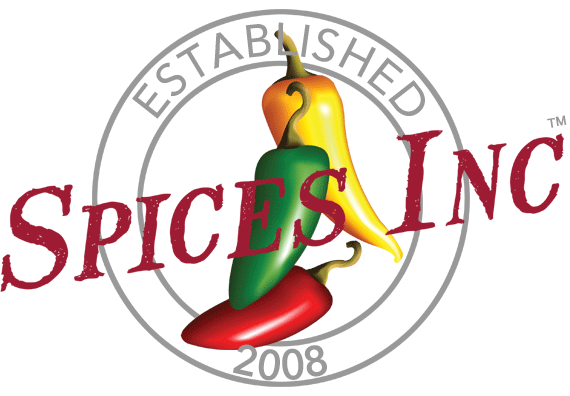
Dried herbs and spices add a lot of flavor to our dishes and they're so readily available and convenient to use. When we're able to blend a combination of spices and herbs the end result usually leads to a wonderful meal. Preserving the quality, freshness and flavor of your spices and seasonings will give you great tasting dishes and help to eliminate boring meals.
Spices don't spoil but over time they do lose their strength. When stored properly spices retain their potency longer than you might think. Whole peppercorns, nutmegs, cloves, cinnamon sticks and whole seeds, such as coriander, cumin, and cardamom all last longer than their ground counterparts.
Table of Contents
Proper Storage
There are two critical keys to maintaining the optimum flavor and in getting the greatest value out of your herbs and spices. Store your spices and seasoning blends in air tight containers and keep them in a cool dark place. Keeping containers tightly closed will protect them from moisture and oxidation. Keeping them away from direct light will keep their color from fading. We've also found that when spices are stored in glass jars they tend to retain more of their essential oil content (this is where the flavor is).
Never store your spices above your stove as the additional heat will more quickly lead to degradation of their quality. Also don't store them directly above your dishwasher as the increased humidity will also shorten their shelf life. Stored spices do best in temperatures below 70° and in lower humidity environments. While achieving both of these may be impractical in your kitchen the closer you can get to the ideal storage of them the better off you'll be.
If you have ever heard it's good to freeze spices and herbs forget it! Condensation will be a problem each time the jar or bag of spice comes out of the freezer and is likely to introduce unwanted moisture to the spices. We also do not recommend shaking herbs or spices out of the bottle directly into something you're cooking as any steam/ moisture rising up from the cooking dish will introduce moisture into your jar of spices. Instead it's better to shake the spice into the palm of your hand and then add it to the dish you're cooking.
Some people like to store red spices like chili powder, cayenne pepper and paprika in the refrigerator to prevent loss of color and flavor. As mentioned in the freezer scenario above I think that it does more potential harm than good.
Whole spices keep the longest because they have not been cracked or ground which would expose their volatile oils to the air which speeds up the breakdown of their flavor. This is why ground spices have a shorter shelf life than whole spices or seeds.
So Many Different Recommendations - Which is Correct?
The government recommendations for freshness dating is four years for whole spices and two years for ground and you may hear people say that spices should be replaced every six months. But most spices are only harvested once a year, so it certainly doesn't make sense to replace these every six months.
If spices and herbs are kept as we have discussed the shelf life will be as follows:
- Whole spices and dried herbs, leaves and flowers will keep 1 - 2 years.
- Whole chile peppers will keep for a minimum of 12 months, and up to 2 years.
- Seeds will keep 2 - 3 years and whole roots (i.e. ginger root or galangal root) will keep 3 years.
- Ground spices and herb leaves keep 1 year.
- Ground roots will keep for 2 years.
Just because a spice or seasoning blends is outside the date range listed above doesn't mean that the spice needs to be tossed in the trash. To determine if a spice or seasoning is still good you have to remember "appearance" and "aroma". A spice that is no longer acceptable will have lost much of it's vibrant color and will instead appear dull and faded. The bigger key though is smell. To determine whether or not a ground spice is still good gently shake the container with the cap on. Remove the cap and smell the spice to see if the potent aroma of the spice is still present. If it is then your spice is still in good shape.
Spices don't just all of a sudden go from good one day to bad the next. From the time they're harvested they slowly begin to deteriorate and what you want to do is to prolong their optimum flavor for as long as possible with proper grinding and storage.
A good overall practice to follow is to only purchase high quality dried herbs and spices, from reliable suppliers, in small quantities so that you can easily use them up in reasonable period of time.
Hungry for more information?
What Spices Go with What Meat
Exotic Spices
How to Store Spices

